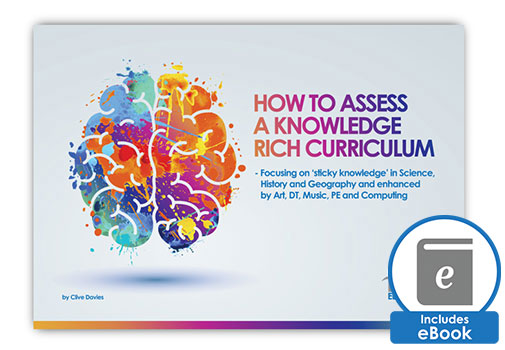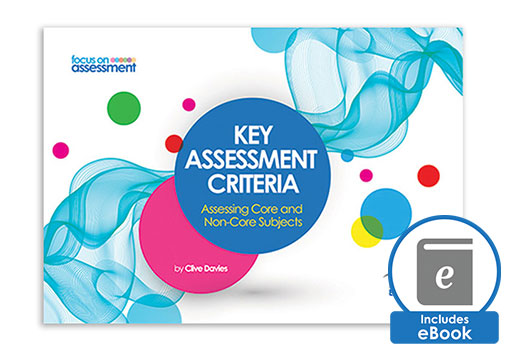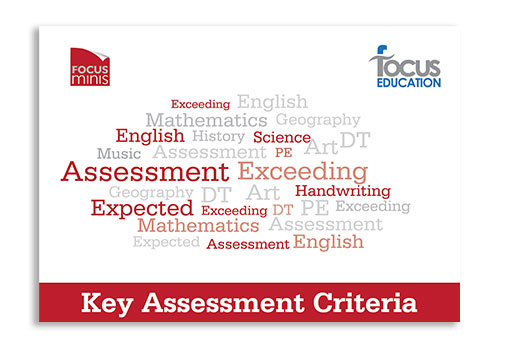
Assessment without levels is intended to encourage a more professional, intelligent assessment.
The Final Report of the Commission on Assessment Without Levels (Sep 2015) makes some interesting points, notably, “The successful implementation of the new national curriculum requires a radical cultural and pedagogical change, from one which has been too dominated by the requirements of the national assessment framework and testing regime to one where the focus needs to be on high-quality, in-depth teaching, supported by in-class formative assessment”.
Given that all school leaders will have ‘grown up’ in a professional world of attainment targets, sub levels, APP, national curriculum targets etc., how easy is it to break away from this familiar world?
The Commission noted, “The system that has been so conditioned by levels, there is a considerable challenge in moving away from them”. It appears that many teachers and leaders are spending hours trying to ‘turn new money into old money’.
Lots of teachers are busy creating descriptors and criteria but at the same time while trying hard not to call them levels and sub levels, APP grids with a new name are appearing!
Step back, remember levels were scrapped for a reason
It is worth stepping back from the detail and remembering that levels were scrapped for a reason: primarily because the evidence demonstrated that they didn’t work and were limiting the learning of our children. The government’s new National Curriculum was designed to re-conceptualise the way we think about Primary Sassessment. The key challenge for every leadership team is to ask: ‘Are we thinking differently?’
The Commission is keen to see schools dig deeper into their own beliefs surrounding assessment rather than recreating the old system. It suggests that they should begin by constructing their own principles of assessment and from these develop their own assessment policy.
The report suggests that a good assessment policy should:
- Be clear what the aims of assessment are and how they can be achieved
- Set out the arrangements for governance, management and evaluation
- Be clear about how assessment outcomes will be used
- Only involve the collection of data where necessary
- Ensure assessment outcomes are communicated effectively to pupils, parents and other teachers
- Outline arrangements for ensuring teachers are able to conduct assessments
- Explain how access to professional development will be provided
It is suggested that for pupils with SEND, account should be taken of the effort that has been put in as well as the outcomes achieved.
The Commission Report usefully outlines helpful prompts to support schools in designing a new assessment policy which breaks away from the old world.
A simple but useful starting point is the consideration that all assessment should fall under one of the following three headings:
- In-school formative assessment
- In-school summative assessment
- Standardised summative assessment
The report then goes on to identify some guiding questions which can be used to help ensure that we maximise the impact of our assessment.
Principles of in-school formative assessment:
- What will this assessment tell me about pupils’ knowledge and understanding of the topic, skill or concept?
- How will I communicate the information I gain from this assessment to pupils in a way that helps them to understand what they need to do to improve?
- How will I ensure pupils understand the purpose of this assessment and can apply it to their own learning?
- How will I ensure my approaches to assessment are inclusive of all abilities?
- How will I use the information I gain from this assessment to inform my planning for future lessons? How could I improve, adapt or target my teaching as a result?
- What follow up action should I take to plug gaps in knowledge and understanding or support progression where learning is secure?
- Is it necessary to record the information gained from this assessment? And if so, how can this be done most efficiently?
Principles of in-school summative assessment:
- Who will use the information provided by this assessment?
- Will it give them the information they need?
- How will it be used to support broader progress, attainment and outcomes for pupils?
- How should the assessment outcomes be communicated to pupils to ensure they have the right impact and contribute to pupils’ understanding how they can make further progress in the future?
- How should the assessment outcomes be communicated to parents to ensure they understand what the outcomes tell them about their child’s attainment, progress and improvement needs?
- How should the assessment outcomes be recorded to allow the school to monitor and demonstrate progress, attainment and wider outcomes?
Take stock, pause and rethink your assessment policy and practice
So its seems, there may never have been a more important time to take stock, pause and re-think your assessment policy and practice. This may not be so much about updating your policy but rather more about updating your thinking.
This is an important time to foster a dialogue with all staff who work with pupils that allows them to reflect on the kinds of assessment practices they are undertaking. They need to reflect on the extent they provide opportunities to build pupils’ understanding and improve their learning in lessons. There is a recognition that learning is neither neat nor linear.
Assessments should provide clarity about what being at the national standard means at every age group. It should also tackle the issue of ‘mastery and greater depth’ by acknowledging that it is not just focused on more able pupils and that it is more easily associated with the desired pedagogy compared to ‘teaching to the test’ associated with the previous levels’ system.
In order to be effective it is essential that the reason for assessing pupils’ progress is defined in terms of its purpose, impact and consequences.
It is also essential to give teachers and their support staff time and the skills to build an understanding of how to use deep and rich questioning as part of formative feedback and the process of learning. There are a number of features that are essential if assessment is to provide an accurate and positive view of the pupil’s learning, attainment and progress.
Here are 10 things to think about when developing your assessment principles:
- Is assessment seen as part of the learning process?
- Are learners provided with enough time to reflect?
- Has there been an increase in the amount of dialogue learners engage in about their learning?
- Is there a culture of professional conversations that promote self and peer evaluation?
- How are teachers and support staff supported in order to give positive feedback?
- Is there an underlying culture that encourages and celebrates pupils’ resilience?
- Do teachers celebrate what pupils have achieved?
- Do all teachers and their support staff recognise that some pupils may need to work in a different way or at a different pace to arrive at a similar place?
- Are the characteristics of mastery understood and shared by all staff?
- Will the culture of boosting really be over?
Continue the Conversation
If you would like to see what assessment books we have available click here. You can also find Clive Davies on twitter @CliveDaviesOBE or get in touch with the Focus Education office on 01457 821 818.
Related Publications
Simon has a well-established track record in education, which includes work as a headteacher in several schools, senior Local Authority adviser, lead Ofsted inspector, and CEO/Director of Academies for the Focus Trust. He is also an accredited Myers Briggs (MBTI) practitioner.









